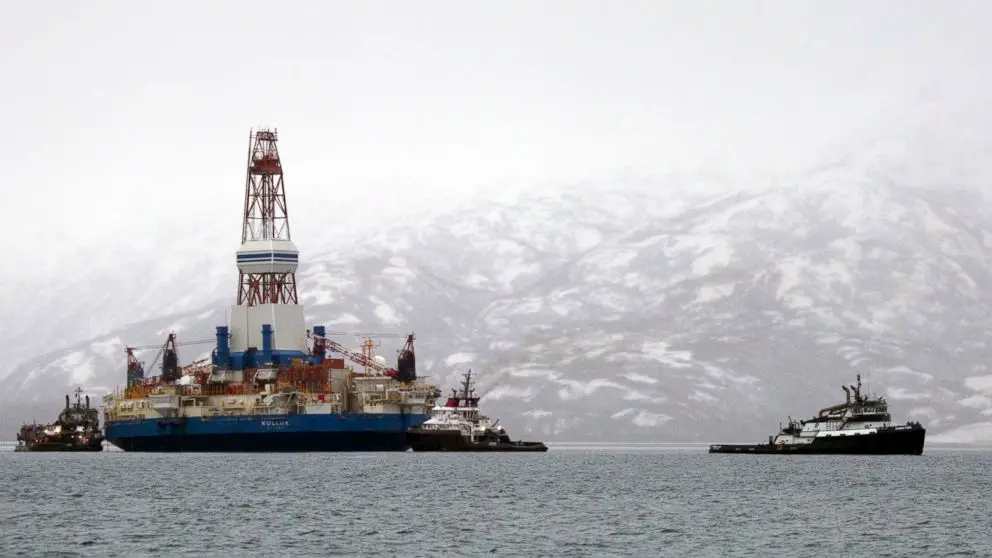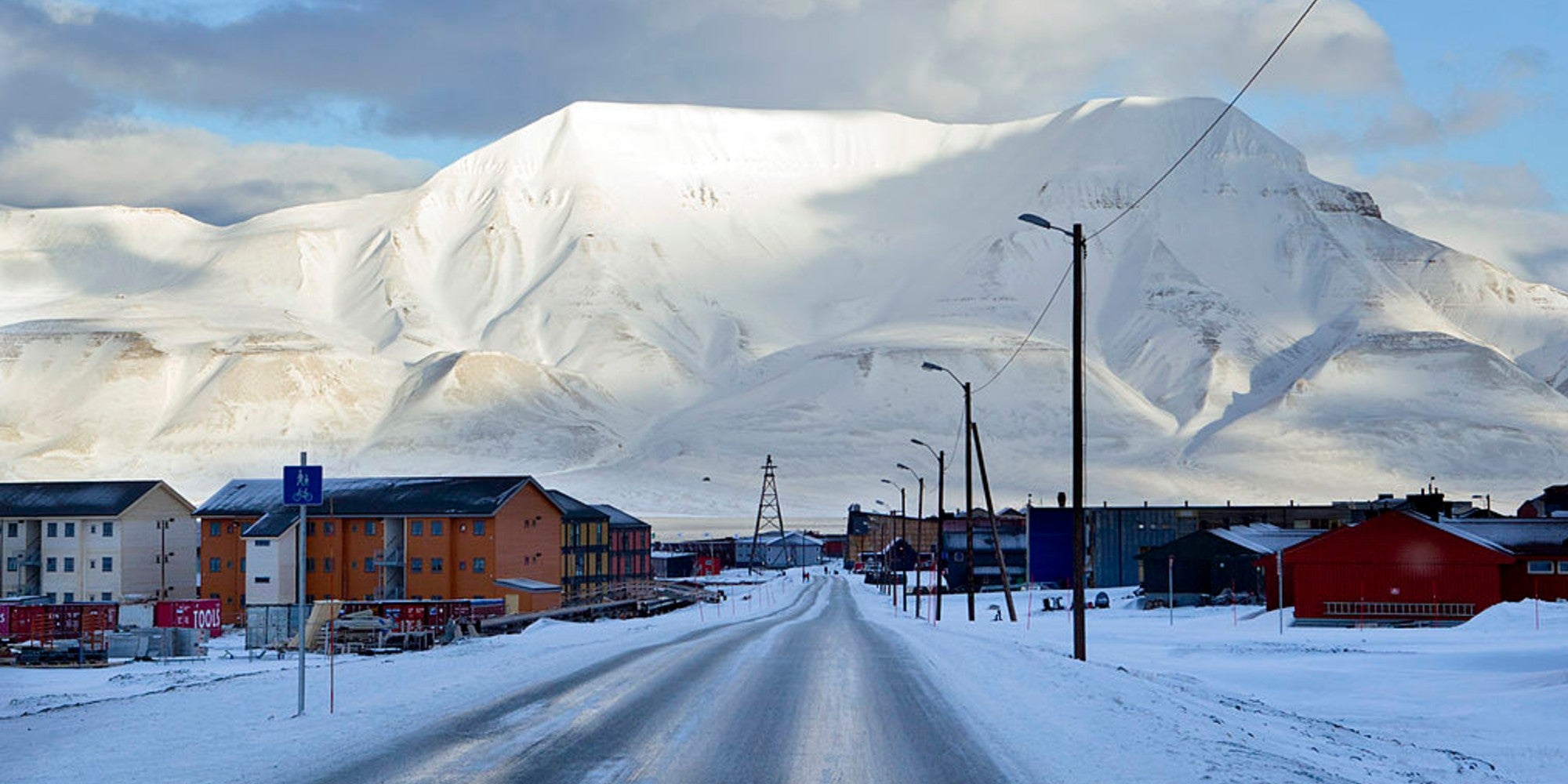On Thin Ice: US Must Begin Preparations for Looming Arctic Competition
The US must begin investing in capabilities able to operate in the frigid Arctic environment or risk falling behind in great power competition.
The Arctic is a region filled with uncertainty, challenges, and opportunity. Russia is committed to being dominant in the area, and the US must decide how it will deal with capability and capacity mismatch while also dealing with conflicts in other regions.
The Arctic has increased in relevance over the past decade as the ice melts and recedes due to climate change. With this revelation, the Department of Defense carries a new responsibility to be able to operate in the region against adversarial great powers like Russia.
The competition in the Arctic has already begun and if policymakers do not act, the US will not only risk falling too far behind but also losing its prestige and influence on the world stage.
Arctic Is Vital for US National Security
The “future” threat of the Arctic makes it less of a priority than current threats, such as the turmoil in the Middle East or clashes in the South China Sea. Although there is not as much action in the Arctic as in the South China Sea, this region is vital for US national security.
The Arctic sea is receding at nearly 13 percent per decade, according to NASA. In the next 20 years, the Arctic will have receded over a quarter. The percentage of reduction is significant because DOD programs and acquisitions often take a decade or more to go from the Engineering and Manufacturing Development phase to Initial Operational Capability and fleet integration.
If the US fails to begin preparations for Arctic competition now, it will be significantly disadvantaged should a conflict arise two decades from now.
Gray Zone Conflict
The accelerated melting of the Arctic ice caps opens a new opportunity to significantly cut the time and distance traveled to deliver goods. By using the Northern Sea Route instead of the Suez Canal, shipping time between Northwestern Europe and Northeast Asia is reduced by a third.
Given that nearly 90 percent of goods are transported by sea, Russia may see the Northern Sea Route as a lucrative opportunity. By providing icebreaker escorts, the Russians could financially benefit from trade companies that want to cut down on their shipping times.
#Russia upgrades its Northern Fleet. If you're not following the #Arctic, you've forgotten the "geo" in #geopolitics. See #maps and chapter from "Connectography" on competition for energy and #supplychains among Arctic powers, including #China efforts. pic.twitter.com/EqbllKaCK7
— Parag Khanna (@paragkhanna) June 10, 2020
Drilling in the Arctic is an area of both national security and environmental concern. Russia may claim resources in international waters as their own, further complicating tension in a region already identified as a gray zone conflict.
Russia has previously gone to extreme measures to claim territory in the Arctic. In 2007, Moscow sent a submarine nearly two miles under the Arctic Ocean and planted a flag to declare the continental shelf as part of their territory.
Arctic drilling also raises the question of response time if there is an oil spill. Lapses in communication due to the weather will present a challenge to search and rescue teams and such delays would be extremely detrimental to the Arctic environment.
Operating Challenges in the Arctic
Operating challenges in the Arctic are significant. The unpredictable weather will affect air operations, radar coverage, shorten battery life, and make tasks such as resupplying extremely complicated and even dangerous.
The Arctic is a new environment in which the US is not accustomed to operating in. For the past couple of decades, the war has been fought in an environment the exact opposite of the Arctic.
The fundamental way upon which the US conducts warfare will change, not just because the environment in the Arctic is different than the Middle East, but also because the US faces a significant disadvantage with regard to capability and expertise in the Arctic.
It is paramount Washington reinvent a naval strategy coherent with overcoming the operating challenges in the region instead of waiting for the conflict to occur.
There is no significant investment interest in Arctic capabilities because it is viewed as a long-term threat or a peaceful region. Therefore, the US Sea Services should focus on future operational movement and how to generate cost imposition on the adversary.
Tools to Support the Mission
Contested spaces like the Arctic will require leadership that is empowered to make decisions without constant contact. Lack of requisite capabilities for these leaders to facilitate sea denial may cause them to inadvertently be set up for failure.
It is imperative that leaders are given the tools to support their mission. However, imposing cost on the enemy does not necessarily require Congress to write checks for large, expensive programs.

The Sea Services may consider using smaller, unmanned, and low signature platforms that are capable of carrying lethal payloads. Notably, the US Coast Guard has invested in a Polar Security Cutter program to replace its aging fleet of icebreakers, but it is costly and time-consuming.
Smaller, unmanned technology that can establish a presence without breaking the bank should be seriously considered within the Department of Defense and in congressional hearings.
What Is Success in the Arctic?
Defining “success” in the Arctic is difficult but critical for both strategic and tactical planning purposes. In the gray zone spectrum of conflict, perhaps the term “zero escalation” best characterizes the environment in which the Arctic will desirably stay.
The United States military’s development of combat credible forces will create a level of deterrence that supports this success plan. Without the investment of time, money, and personnel, the US risks creating conditions that allow Russia to escalate its aggression.
The viewpoint that the Arctic is a long-term threat should not negate the requirement for research, development, and testing of capabilities to understanding the region and what it will take to operate successfully.
If the US is put in a position where it cannot enforce international law because its military cannot operate and is denied access by the Russians, it will undeniably look weak on the world stage.
 Jada Rivera graduated from Arizona State University with a Bachelor’s of Science in Political Science. She also holds a Masters of Arts in Security Policy Studies with a focus on National Security from George Washington University. Jada currently works as a Staff Analyst for an aerospace company.
Jada Rivera graduated from Arizona State University with a Bachelor’s of Science in Political Science. She also holds a Masters of Arts in Security Policy Studies with a focus on National Security from George Washington University. Jada currently works as a Staff Analyst for an aerospace company.
Disclaimer: The views and opinions expressed here are those of the author and do not necessarily reflect the editorial position of The Defense Post.
The Defense Post aims to publish a wide range of high-quality opinion and analysis from a diverse array of people – do you want to send us yours? Click here to submit an op-ed.












